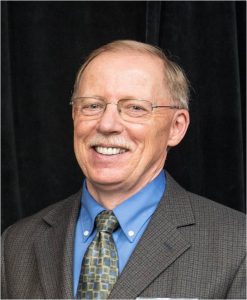Participants in the facilitated town/district meetings have raised a number of common interests. While many items are budget-related, other topics include increasing/improving communications, marketing the schools and towns in the district, and promoting economic growth in the area. In many ways—whether we’re discussing the future of the district’s schools, or the feasibility of small and rural towns—the issues are similar because the size of our schools and towns are not conducive to economies of scale. This is even more concerning due to the rising average age of our residents, the decrease in school-aged children, and the prospect of a continuing glut of state and federal regulations that often seem to make the simplest task so complex that the average person can’t function without breaking some rule or another.
The schools face the same issues as the towns: to consolidate over such great distances in a manner that may save significant costs is nearly impossible and creates large disruptions in the traditional fabric of our rural existence. While the schools could share certain positions with other school districts, the fact is that this could provide us with needed expertise but might actually add to the budget. As we saw when the district closed three elementary schools, closing schools is the only way to significantly reduce the budget without cutting student services, despite the impact on local towns. To save significant additional dollars by closing schools would essentially give up on the idea of having local schools, certainly not something that many would consider a fair exchange.
The same issues arise when asking why six small towns require six of everything – selectboards, finance committees, assessors, treasurers, town managers, fire departments, highway crews and so on; there might be a cost savings by consolidating, but at what cost to local control, issues of safety, speed of response, and knowing that your neighbor (or you) is part of town government with everyone accountable to their citizens through the annual town meeting? Our population, whether students or other town residents, is scattered over a large land mass, which certainly makes consolidation of all services difficult.
Further consolidation also brings up a number of regulatory issues: past and current debt services, capital assets, the question of how to manage a new combined entity, a change in town meeting or school committee representation, the distribution of costs and services, the questions around “ability to pay”, and the loss of local control. This doesn’t mean we have to forgo looking at additional options, new ways of operating, or creating new opportunities – simply that many of these require much planning, legislative changes, and a great deal of communication and collaboration.
Thinking that change on such a scale can occur immediately, that the citizens can starve either the towns or schools by declining to pay for ongoing services, or that we can develop a plan without positive collaborative efforts by all involved is ludicrous as well as dangerous. It is past time to stop complaining, pointing out all the faults, or taking sides and to begin an honest effort to jointly research, develop, and implement ideas that have the opportunity to improve our lives, our schools, and our communities. Without moving forward in a positive manner, working jointly to garner appropriate state support, and setting some long term goals, we will only face more of the same. Our communities once took advantage of the area’s natural resources, local talent, and needs of the world in the 1800’s and 1900’s to create jobs, develop infrastructure, and grow opportunities for businesses to start, expand and flourish. Today, we need to find the right combinations to do the same as we look towards the future. While no one knows for certain what the future may bring, the historical precedence points out the need to be flexible, take advantage of new technologies, and ensure that residents have the education they need to find and take advantage of opportunities.


